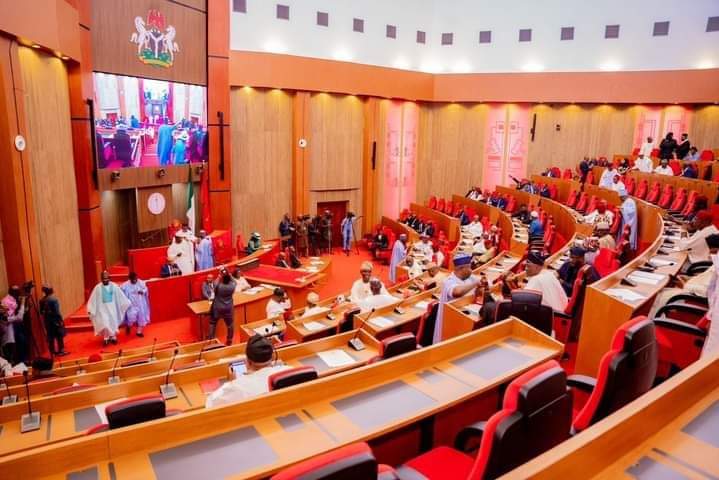The Nigerian Senate embarked on the legislative process for the 2025 Federal Capital Territory (FCT) budget, a proposed appropriation of ₦1.783 trillion, presented by President Bola Tinubu. The President’s letter to the Senate, read by Senate President Godswill Akpabio, underscored the constitutional basis for the budget presentation and emphasized the importance of expeditious passage for the FCT’s development. Tinubu highlighted the budget’s focus on key sectors like health, social welfare, agriculture, and employment, asserting its critical role in delivering efficient and service-oriented governance to FCT residents. The allocation strategy revealed a significant emphasis on ongoing projects, with 85% of the budget dedicated to their completion, while 15% is earmarked for new initiatives. The President urged the National Assembly to prioritize the budget to accelerate development within the FCT.
Following the initial reading of the president’s letter, the FCT budget proposal swiftly progressed to its second reading. The budget’s breakdown revealed ₦150.35 billion designated for personnel costs, ₦343.78 billion for overhead expenses, and a substantial ₦1.29 trillion allocated for capital projects. Senate Leader, Senator Opeyemi Bamidele, advocating for rapid processing, proposed the suspension of Senate Standing Order 78(1) to enable the bill’s second reading on the same day. This procedural move encountered resistance from Senator Abdul Ningi, who raised concerns regarding the non-distribution of the bill’s copies to senators before the debate, referencing Senate rules 77 (3 and 4). This highlighted the tension between expediency and adherence to established legislative procedures.
Despite these procedural objections, the Senate proceeded with deliberations on the general principles underpinning the FCT Statutory Appropriation Bill for the 2025 fiscal year. Senator Bamidele, leading the debate, elucidated the bill’s core objective: authorizing the allocation of ₦1.783 trillion from the FCT Administration’s Statutory Revenue Fund to cover personnel, overhead, and capital expenditure from January 1 to December 31, 2025. He stressed the budget’s focus on ensuring effective and service-oriented administration, with a prioritization of completing ongoing projects crucial to infrastructure and essential services in Abuja. This emphasizes the continuity of developmental efforts.
The debate underscored the dual focus of the budget: completing existing projects and initiating new ones deemed vital for the FCT’s growth and sustainability. This balance between consolidating existing investments and pursuing new developmental avenues signifies a strategic approach to resource allocation. While the emphasis on ongoing projects ensures that already initiated projects reach completion, avoiding wastage and delivering promised services, the allocation for new initiatives allows for addressing emerging needs and fostering future growth within the FCT.
The Senate’s decision to refer the bill to the Committees on FCT, Area Councils, and Auxiliary Matters marked a crucial step in the legislative process. This referral allows for specialized scrutiny and detailed analysis of the budget proposal, ensuring that the allocated resources are effectively targeted and align with the FCT’s developmental needs. The committees’ expertise in relevant areas allows for a comprehensive review of the budget’s intricacies, ensuring that all aspects are thoroughly examined before final approval. This step also fosters greater transparency and accountability in the budgetary process.
The mandated one-week timeframe for the committees to report back to plenary underscores the urgency attached to the FCT budget’s passage. This accelerated timeline reflects the Senate’s commitment to facilitating timely implementation of the budget, enabling the FCT administration to commence planned projects and programs without delay. The swift progression of the budget through the legislative process signifies a concerted effort to ensure that the FCT’s developmental needs are addressed promptly and efficiently. The one-week deadline also ensures that the Senate can thoroughly deliberate on the committee’s findings before the final vote, balancing speed with due diligence.














